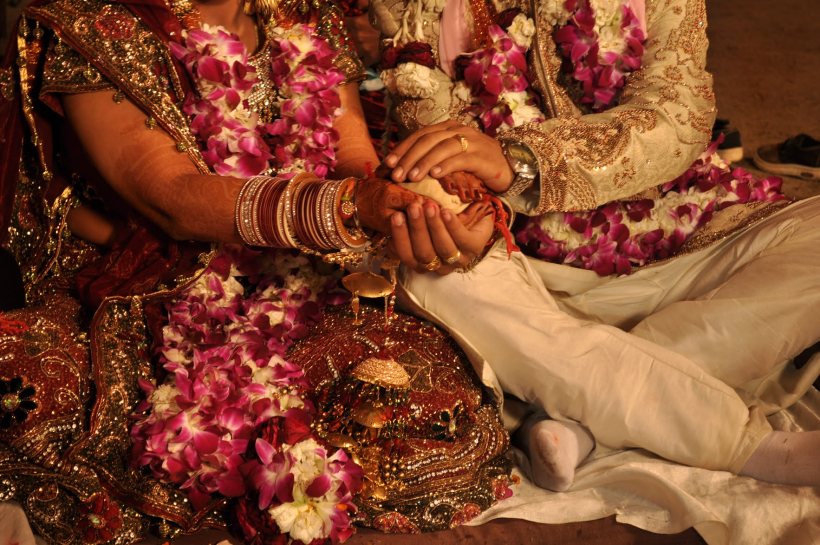by Mahak Singhal
What are the laws in India if a foreigner marries an Indian? Does that entitle him to claim permanent residence in India or even a passport?
Special Marriage Act, 1954, [“SMA”] and Foreign Marriage Act, 1969, [“FMA”] govern the foreign marriages in India. Therefore, the client can register the marriage in either one of them.
Indian Laws
Since the legal age for marriage in India for girls is 18 years and for boys, 21 years, the same rule extends to marriage with a foreign national, even though their country’s domestic law may prescribe a higher or lower age for marriage.
According to SMA and FMA there exists a 30-day notice requirement to be given in India if one partner is permanently and the other partner is temporarily residing in India.
Section 5 of FMA – When a marriage is intended to be solemnized under this Act, the parties to the marriage shall give notice thereof in writing in the form specified in the First Schedule to the Marriage Officer of the district in which at least one of the parties to the marriage has resided for a period of not less than thirty days immediately preceding the date on which such notice is given, and the notice shall state that the party has so resided.
Section 5 of SMA – When a marriage is intended to be solemnized under this Act, the parties to the marriage shall give notice thereof in writing in the form specified in the Second Schedule to the Marriage Officer of the district in which at least one of the parties to the marriage has resided for a period of not less than thirty days immediately preceding the date on which such notice is given.
Procedure
The parties have to provide a notice to the Marriage Officer of the district in which at least one of the parties has resided for a period of not less than thirty days.
The form provided in the second schedule of the Special Marriage Act is to be provided as the notice.
- The notice will be published by the marriage officer by affixing it to the place in his office and will keep the original copy of the notice in the Marriage Notice Book. (Sec 6 of SMA)
- If a person has an objection to the marriage, he/she is allowed to raise the objection within 30 days from the date of publication of notice by the marriage registrar. (Sec 7 of SMA)
- During the court marriage, a declaration is to be signed by the parties along with three witnesses declaring that the parties are doing the marriage with their free consent. (Sec 11 of SMA)
- The marriage can be solemnized at any place at a reasonable distance in the Marriage Officer’s district. However, it will not be considered valid unless each party says to the other in the presence of the Marriage Officer and the three witnesses and in any language understood by the parties,-“I, (A), take the (B), to be my lawful wife (or husband)”. (Sec 12 of SMA)
- After the marriage is solemnized, the Marriage Officer will enter a certificate in a book that is kept by him, called the Marriage certificate Book and the certificate is to be signed by the parties to the marriage and the three witnesses. The certificate is deemed conclusive evidence of marriage being valid in India. (Sec 13 of SMA)
- The whole process of registration of marriage has to be completed within 3 months from the date of the notice was served. (Sec 14 of SMA) WHEREAS the time period is 6 months if the marriage is registered under FMA (Sec 16 of FMA). Otherwise, new notice will have to be submitted after the lapse of time.
Citizenship
The Court observed that any person who is married to a citizen of India and has resided in India for the past seven years can make an application for citizenship by registration. Section 5 of the Citizenship Act, 1955 deals with citizenship by registration which allows the central government to register someone as a citizen of India.
Citizenship of India by registration can be acquired by-
- A person who is married to a citizen of India and is ordinarily resident of India for seven years before making an application for registration; or
- A person of full age and capacity who has been registered as an overseas citizen of India for five years, and who has been residing in India for one year before making an application for registration.
Alternate – Overseas Citizen of India Cardholder [“OCI Cardholder”]
https://www.mha.gov.in/sites/default/files/OCIBrochure_23072021.pdf
If an Indian citizen or OCI Cardholder has a spouse of foreign origin then that foreign origin spouse can apply for registering as OCI Cardholder (under section 7A of the Citizenship Act, 1955), if the marriage has lasted for two or more years.
Benefits of having an OCI Card –
- Grants the permanent residency in India.
- A person will not lose his/her citizenship of their home country.
- Multiple entry lifelong visa for visiting India for any purpose.
- Exemption from registration with Foreigners Regional Registration Officer (FRRO) or Foreigners Registration Officer (FRO) for any length of stay in India.
- Registered Overseas Citizen of India Cardholder shall be treated at par with Non-Resident-Indians in the matter of inter-country adoption of Indian children.
https://www.mea.gov.in/images/pdf/oci-faq.pdf
Point 40 in this link states that an Indian Passport cannot be issued to an OCI Cardholder. It is only issued to a citizen of India.
Documents Required for a Marriage under the Act from the Parties:
- The notice signed by both parties.
- Receipt of fees paid along with the notice.
- Date of birth proof of both the parties.
- Residential address proof.
- Affidavit – one each from both the bride and groom.
- A statement affirming that the parties are not related to each other under the prohibited degree of relationships.
Additional Or Alternative Documents Required Only From Foreigners:
- Proof of residency and address in India.
- A valid passport
- Original birth certificate
- Visa
- Certificate of single status
- Letters of no objection through the home country’s embassy regarding the free consent of the parties
- Death certificate or divorce papers, if required by the parties




